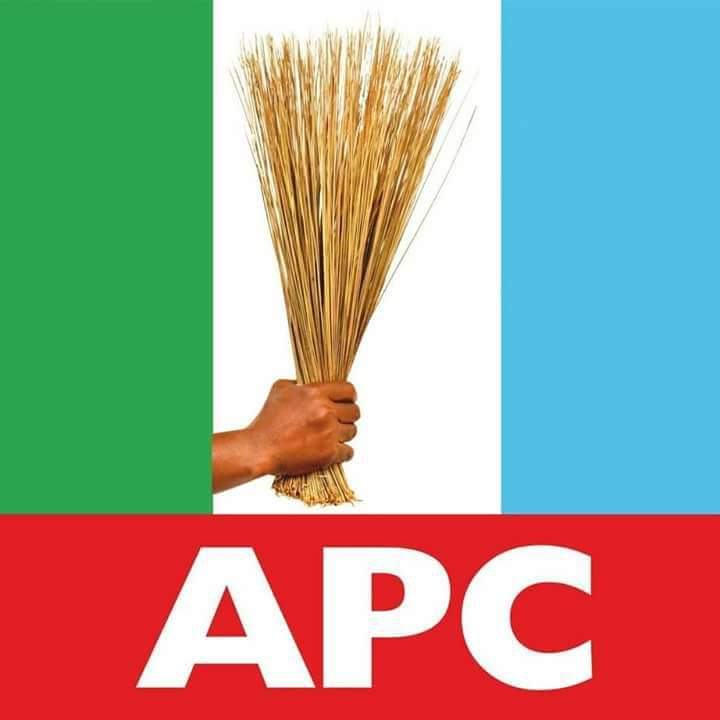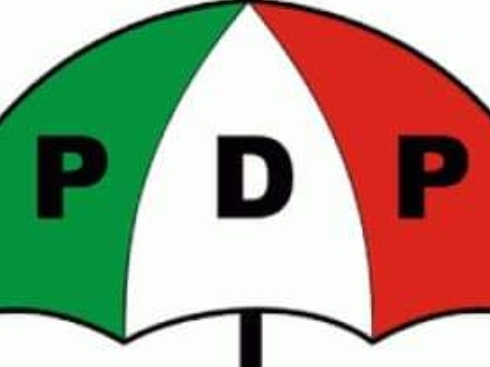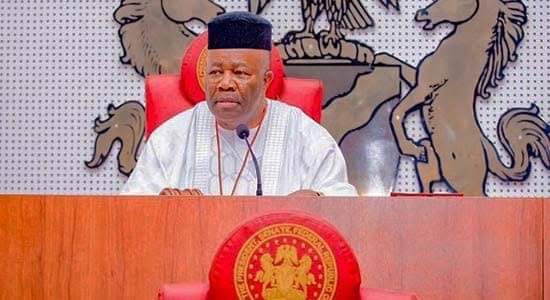Fresh Crises Rocks National Assembly Over Electoral Act
Information reaching Naija News House says that Fresh Crises Rocks National Assembly Over Electoral Act As Lawmakers Set For Showdown
Direct primary clause stalled the passage of the Electoral Act Amendment Bill at the twilight of 2021 as President Muhammadu Buhari withheld his assent, citing the clause as the main reason. Since then, fireworks have refused to extinguish.
Members of the National Assembly are virulently divided on the matter just as the nation, too. While some like the President’s decision, many aren’t happy with it. Signing the bill into law is the chant in many quarters. Several others want the status quo of direct and indirect modes to be restored.
Propelled by this clamour and the anger in the air, the leaderships of both the Senate and House of Representatives promised a revisit to the bill. Can they bark, bite or back down? It is battle royale as Sunday Vanguard evaluates the situation from the beginning with a prediction of what is likely to play out on Tuesday when the National Assembly resumes from Christmas/New Year break.
Make no mistakes about it, there is a cold war between the National Assembly and the Presidential Villa. Senators are angry and so do are a handful of members of the House. Reason: President Muhammadu Buhari called their bluff on the Electoral Act Amendment Bill. For over two years, the 9th Assembly spent time working on the bill only to later have the President run a red line on the document.
To them, the President, knowing he was not going to give his assent to the bill should have given the indication earlier than to withdraw his pen only when the bill had been passed.
Bone of contention
President’s chief reason for rejecting the bill was the inclusion of the direct primary clause. In his letter of rejection to the Speaker and Senate President, titled, ‘Withholding of Assent to Electoral Act Amendment Bill 2021’, and dated December 13, 2021, the President said current realities of insecurity and COVID-19 challenges in the country will not allow for direct primary.
But speaking during an interview with a national television recently, Buhari gave hints of assenting to the document if reworked.
“Personally, I don’t support direct primaries. Let the people be given options and let them choose the option that is best for them”, he had said on that occasion.
“I didn’t tell the legislators what I didn’t like. All I said is that there should be options and once that is done, I will sign”.
Second time
This was the second time the President was turning his back on the document. Recall that prior to the 2019 elections, he also declined assent to the bill. His reason was that he couldn’t in good conscience give vent to a new set of electoral laws on the eve of general elections. Of course, Buhari had his way and the move to give legal backing to the use of card readers essentially promoted in the bill suffered a setback.
To be fair to Buhari, he doesn’t have to interfere with the work of the legislature. Remember that the principle of separation of powers is also a Nigerian. It lives in Abuja and, indeed, in every nook and cranny of the country. What the President always does is just wait for public funds to be wasted in enacting a piece of legislation, then, he vetoes it.
On the heels of this, one is tempted to ask: what gain do you make out of interdependency of different arms of government, the many synergistic meetings of the President, the Senate President and Speaker of the House and the joy of having the ruling party control the Executive and the Legislature in a democratic arrangement? Maybe it doesn’t apply.

But Baron de La Brède et de Montesquieu, the French philosopher who propounded the Principle of Separation was right. The drafters of the Constitution were also right to have included Section 58.
The import of the Section is that when the President withholds assent to a bill, the National Assembly can override his veto. But here, there is a problem. The present National Assembly, as constituted, lacks the temerity to override. Instead, they resort to taking the escape route and pushing it back to the people. Now, imagine the representatives of the people in a democracy saying only the people will decide?
But to be fair to the headship of both chambers, 2/3 of the majority to ensure an override of Buhari will be a Herculean task unless the President is not a Nigerian politician.
Will the House override the President’s veto? Reps Gbajabiamila, Onuigbo, Ogun, Igbakpa, Gum, Bob speak
As the National Assembly resumes plenary from its 2021 Christmas/New Year holidays on Tuesday, barring any last-minute shift in the resumption date, expectations are high that the House will act on the President’s veto. But whether or not, they will override or expunge the direct primary clause and return the bill to the President is largely tucked in the womb of time.
Speaking recently in Lagos, Speaker Gbajabiamila said the President refused to sign the bill based on advice he received, insisting, however, that the direct primary clause was meant to ensure Nigerians participated in the electoral process.
“The president has, in his wisdom, rejected it and I believe he did it with good intentions based on the advice that he got. He weighed everything”, he had said.
“Again, maybe times are different. He has people who advised him and I guess they advised him against the amendment bill.
“There is a process. When we come back, as I said, the House will look at those amendments. We will sit as the National Assembly, look at the reasons and at that point, consider removing that clause and pass the bill so that we do not do away with the baby and the bathwater.
“But then, it is not my decision to make. It is the decision of the National Assembly, if they determine that the reasons are not good enough, then, there is a process prescribed by the constitution.
“Which way the sword is going to fall I have no idea until that time. I cannot read the minds of the whole National Assembly members.
“They need two-thirds of the member to override the president, there is a reason the constitution prescribes two-thirds. Veto is not something you easily override.
“If they muster enough and they believe it is in the best interest of Nigerians, then, that is what we will do; otherwise, we will take out the clause and pass the bill so that Nigerians can have a credible electoral act and due process. They must get it”.
A couple of other lawmakers also ventilated their feelings on the issue to Sunday Vanguard.
It takes both chambers to override a veto- Hon. Sam Onuigbo, member representing Ikwuano/Umuahia North/Umuahia South Federal Constituency of Abia State.
“Overriding the President’s veto requires the input of the two chambers. One hand does not clap itself. It requires the resolution of the two Houses. What we did was constitutional. If the Senate had gone ahead to override in December 2021 and we come in January 2022 to say no, it doesn’t merit it, the exercise would now be in futility.
That was my response in December. So, the two chambers must agree because it’s a bicameral legislature. If you go to Section 58 of the Constitution, it states the processes to override in case Mr President has any reason to withhold assent. Those things are very well spelt out and we know how to approach them.
My position is that we have two options: One, to exercise the constitutional provision, two, after consultation, why do you want to throw away the baby with the bathwater? We have some other provisions in the electoral bill”.
I don’t think there will be override- Hon. Sergius Ogun representing Uromi federal constituency of Edo State.
“I don’t think there will be override but adoption of the President’s position as outlined in his letter to the NASS”.
Direct primary is a party affair- Hon. Ben Rollands Igbakpa representing Ethiope federal constituency of Delta State.
“In a country of about 200 million people, you must have dissenting voices and I think the major issue that most people are interested in is electronic voting and transmission. If we cannot get voting electronically, then, at least, we should do the transmission electronically.
That is the baby in this storm. And that is why Mr Speaker, in his wisdom, said we cannot throw away the baby and the bathwater. The issue of primaries, as far as I am concerned, is a function of the party. It is their right and I consider it undemocratic for the parliament to give a legislative piece that will hold them, be rigid about it and say you must do it this way”.
Direct or indirect primary: It’s a game of survival-Hon. Sulaiman Abubakar Gumi, member representing Gummi/Bukkuyum federal constituency of Zamfara State
“On the issue of direct and indirect primaries, you see, it’s about perspective, about the same game of survival. As it is, governors have a lot of powers at the state level and now, if you say those lawmakers or others who are not in unison with the governors and want direct primary where people will come and queue up behind their candidates, that’s true democracy.
That’s the way to go if all things are equal. But you know you have to consider the surrounding circumstances like security. In Zamfara, where would you queue up people? Are you bringing them out for bandits to come and have a field day? You can bring out people en-mass and keep them.
We have the issue of COVID-19. Some states have peculiar problems. Now if you say, one option, then what happens if that one option is not feasible in a particular location?
So, having multiple options that would suit a particular location should be on the table. You can’t say this is the only option, we should have other options too. But I prefer direct primary because I know that’s the true test of a candidate’s popularity in a democracy.”
We are opposed to direct primary- Hon Solomon Bob, member representing Abua/Odual and Ahoada East federal constituency of Rivers State
“Everybody knows that the matter of Electoral Act Amendment Bill is the main issue we will deal with when we resume. The whole nation is right now waiting with bated breath. The whole process of 2023 hinges on the passage of the Electoral Bill.
It is not hard to guess what we will do. Those of us from the beginning opposed the imposition of one mode of primary election because that’s not what we in the electoral committee recommended. We left it the way it was before. Both options (direct and indirect primaries) were available in the extant law that we sought to amend so that any party can choose.
If you recall, in 2019, APC chose a direct model for their presidential convention. That’s the way we left it. So, on the floor, given the attempt to pass the bill which, of course, didn’t happen because of the rancorous situation, what was eventually passed was the direct model, the majority of those who opposed it are in my party.
So, if the President who belongs to another is now against it, it doesn’t take a lot to guess that the members of his party will toe this same line because we, on our side, opposed it from the beginning.
Now, I can assure you that the majority of those in their party will join us. So, the apprehension regarding that provision or whether there will be a need to veto the President’s assent is really unnecessary.
I don’t see that happening. Given the President’s stance now, any number from his party that joins our party will give us the majority. I think it will be eventually deleted. I don’t think it will stand. As I said, the Electoral Bill is the topical issue now and most Nigerians are looking up to the National Assembly to do what they want to allow for early passage of the bill.”
Last line
The House and Senate resume on Tuesday and so, while the dissenting voices continue to resonate, Nigerians are the spectators. Whether the lawmakers will bark, bite or back down on the contentious clause is left to be seen in the days ahead. But whichever way it pans out, the general elections must hold in February 2023 and a new set of leaders will emerge.
Electoral Act











































